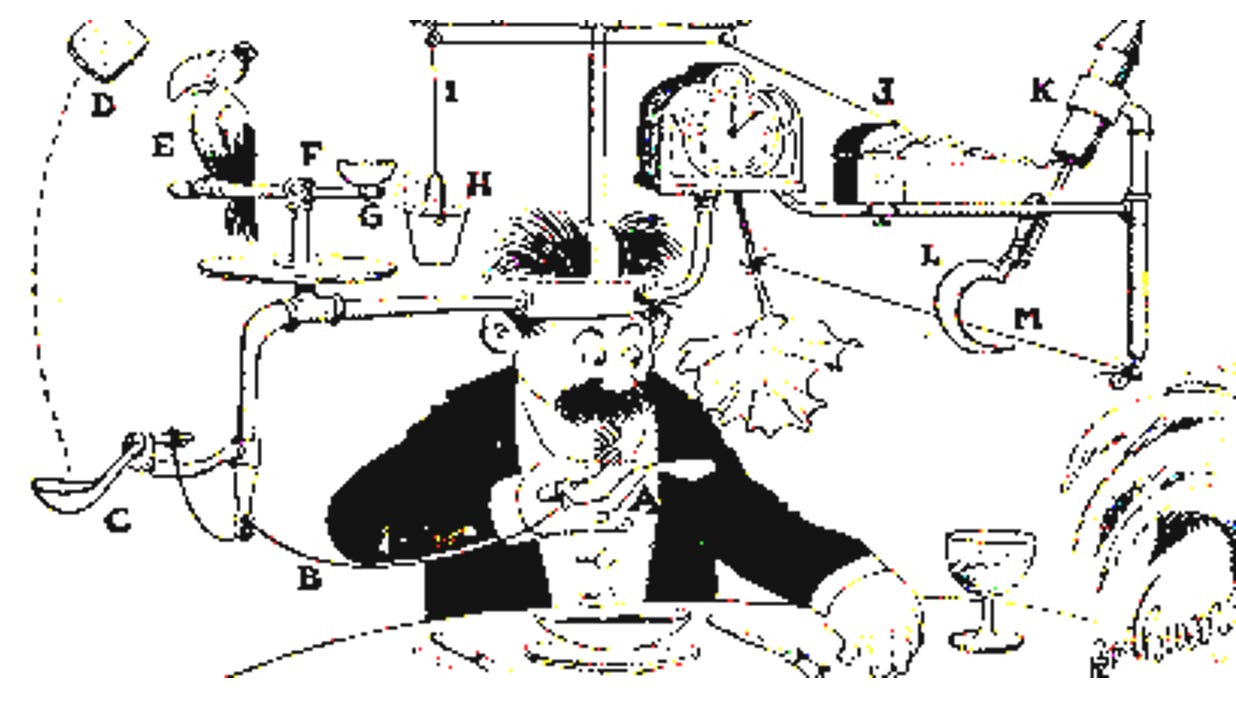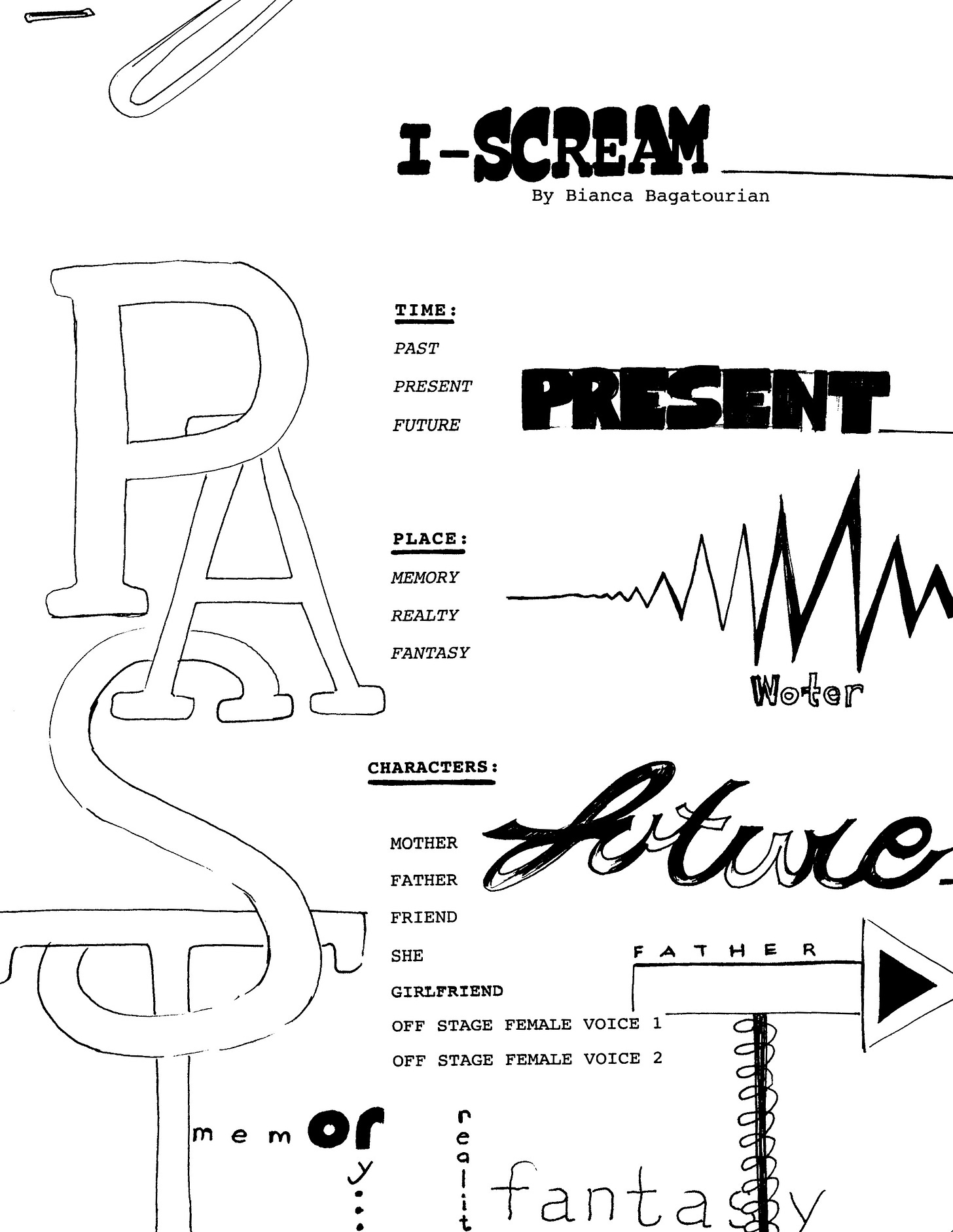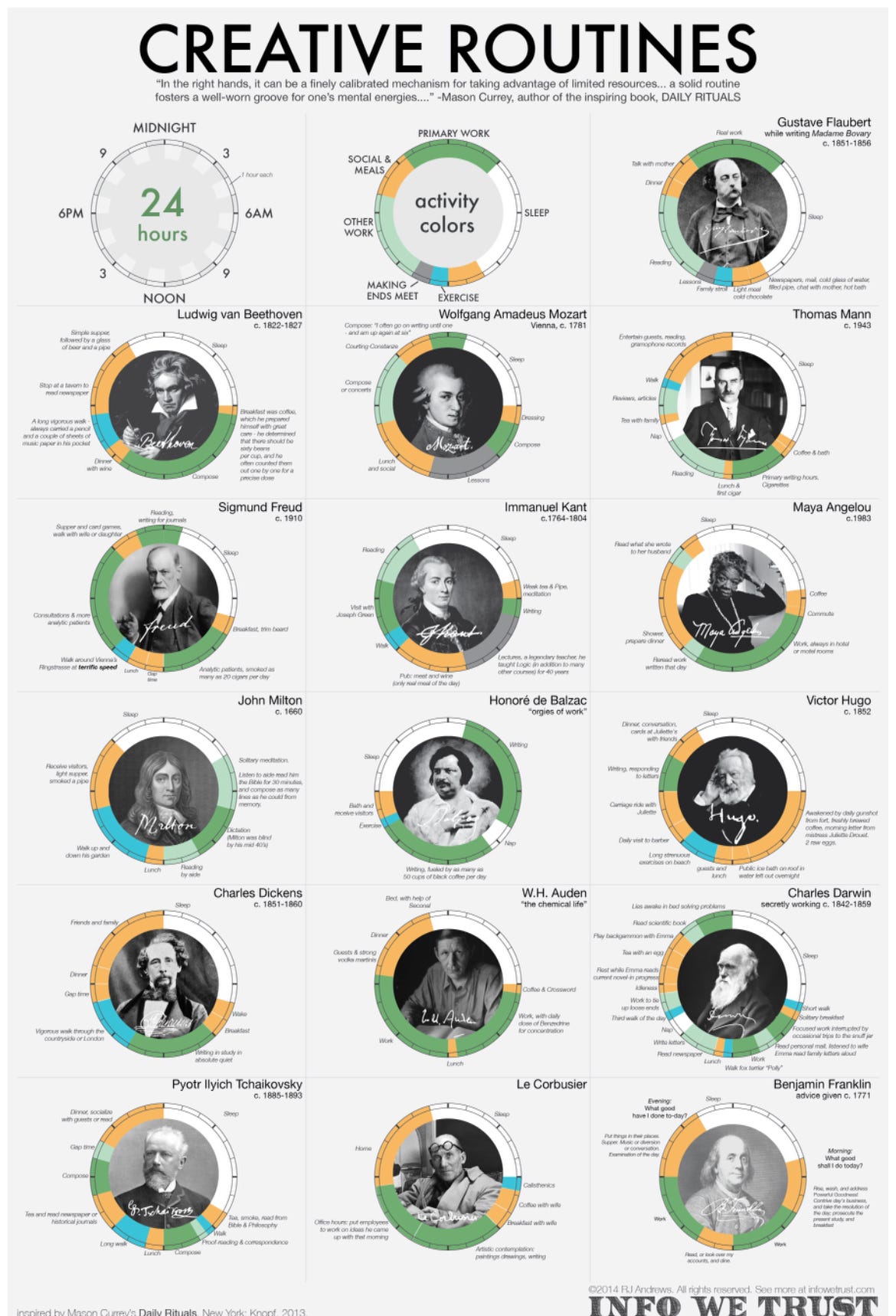
WRITING WITH YOUR LEFT HAND
Greetings! This newsletter is a bit different and singular. I wanted to address a common writer’s problem I hear about all the time and tackle it head-on. WRITER'S BLOCK. Contrary to common belief, writers don’t just sit down and spit out reams of pages all at once.
Does it exist? The term has become a catchall for a hundred conditions that can stop you from being able to write. But much like any condition, if you break it down into small parts, analyze and examine them individually, you will find that dealing with the core issues underneath will eliminate your block.
This particular newsletter could be looked upon as an entire writing exercise to help you conquer whatever it is that stops you when you feel stuck. You can scroll down to read more.
“When I’m in writing mode for a novel, I get up at 4 a.m. and work for five to six hours. In the afternoon, I run for ten kilometers or swim for fifteen hundred meters (or do both), then I read a bit and listen to some music. I go to bed at 9 p.m.
I keep to this routine every day without variation. The repetition itself becomes the important thing; it’s a form of mesmerism. I mesmerize myself to reach a deeper state of mind.
But to hold to such repetition for so long — six months to a year — requires a good amount of mental and physical strength. In that sense, writing a long novel is like survival training. Physical strength is as necessary as artistic sensitivity.”

HISTORY OF MESMERISM
I recently read an article about how a writer who said he mesmerizes himself into writing, and I thought, YES, that's precisely what I have silently been doing over the past few decades. And I think many other writers do this in their own way, especially when feeling blocked. I used to think of it as "tricking" myself, but I like the term “mesmerizing” much better. Call it getting into the zone, the flow - whatever helps you reach peak performance - where you are entirely in the now, bashing away at the keyboard non-stop and excited about doing it to boot. The point is, it works! And once you have figured out which rituals work for you, you will have a whole host of tools and never face a dry patch again.
The complete opposite of multi-tasking, you must be fully immersed in the activity at hand to reach this heavenly state. It’s similar to what Master of Self-Actualization Abraham Maslow referred to as 'peak experiences, ' a theory of psychological health predicated on fulfilling innate human needs, culminating in self-actualization. A Mckinsey study shows people in flow states are 500% more productive! Who wouldn't want that?
I decided to dig further and see if I could demystify this a little more. I began by looking into the history of "mesmerism,” which started in the late 1770s - amid the French Enlightenment when Franz Anton Mesmer believed he had discovered something akin to electricity called “animal magnetism.” In 1836, when the trendy European phenomenon first took New England by storm, Charles Poyen, a Frenchman and self-proclaimed professor of animal magnetism, launched a multi-city tour of highly entertaining "mesmeric" theatrical shows which were the forerunners of modern hypnotism. During its heyday, mesmerism straddled lines between popular culture and scientific discovery, religion and science in lowbrow and highbrow culture. In time, mesmerism would give way to hypnotism.
This leads us back to flow states which may be thought of as hypnotism; the main difference is that flow is likely to occur if you are goal-oriented with a means of consciously monitoring progress and receiving concrete feedback. And, of course, hypnosis usually occurs privately, whereas flow states tend towards the public, like sporting events, concerts, etc. But the best thing is, you can practice flow on your own with no need for a hypnotist!
WRITER’S BLOCK
- DOES IT REALLY EXIST?
Writer's block, or the blue screen of death, as it's called nowadays, is an idea that proposes a complete inability to produce new written work. A common occurrence among writers, it can manifest in various ways, such as difficulty in coming up with new ideas, struggling to organize thoughts into coherent sentences and paragraphs, or feeling stuck in the middle of a project with no clear path forward.
So, let's break it down. What can cause such a phenomenon? Various factors, including stress, self-doubt, perfectionism, lack of inspiration or motivation, and physical or emotional exhaustion, can contribute to this paralysis. It can be a frustrating and demoralizing experience and may take time and effort to overcome. Every writer uses strategies of their own. Different strokes for different folks, as they say. Let's take a look at a few.
- MY PERSONAL RITUALS
Like many, I have rituals I've developed over the years. Many writers also have their own techniques, probably solely singular in detail, with some commonality with others sitting down daily to create original content.
Writing needs self-discipline and a lot more. It's a practice you build over the years incrementally, gently, meticulously. And, of course, you need heaps of self-motivation. Like your morning or bedtime routines, you can carve a pathway on the road to creating, your inner road map that connects to that inner voice.
When a writer enters the flow state, they become deeply absorbed in their work, the outside world fades away and they experience a sense of intense focus, heightened creativity and a feeling of being "in the zone." Getting into the zone is a highly personal process - what works for one person may not work for another. Experiment with different techniques to find what works best for you. For example, I talked to my screenwriter brother about this and he said obstacles for him were complex scenes. His method of dealing with this was booking an acupuncture session, going in with the scene in mind, and running it over and over as he lay in the session and every time he would emerge with the problem solved!
Here are some of my tips you may want to try:
Avoid Distractions - Clear your desk, your wall, your desktop. Turn off your phone, lock the door. You know what your distracting triggers are, so make sure to get rid of them before you sit down for a writing session.
Switch Locations - You can do this within your house or outside of it. Have many writing stations set up and bounce around.
Put On Some Loud, Energetic Music - Somehow, this focuses the mind. And feel free to dance around and get physical or write while standing up.
Journaling - Often, we are blocked by emotional difficulties. Write out the problems, give them a name, let them travel down your arms and through your fingertips, and enter the world. As I process my issues in this way, they are often resolved by the time I have written them out.
Have At Least 3 Different Screens - With a different project on each one. I feel handicapped if I have less. (An extra screen can cost as little as $100 and can incredibly increase productivity)
Take Multiple Breaks - Don't try to push through. That invariably does not work. If you take some time off and do something different, you will return with a fresh perspective.
Take A Vacation - One that lasts more than a day! It’s amazing…When I'm on a plane, I can literally feel my perspective changing as the distance builds between me and the place I’ve just left.
Write On An Airplane - And, speaking of planes, they are wonderful places to write. Creativity never fails to flow freely amongst the clouds.
Write A Letter - Draft a note about your block to a friend and explain why you are stuck. I bet you will have found your way out by the time you are finished!
Yoga - Stretching actually releases the tension in muscles that are caused by stress. Any form of Yoga or meditation can remove these obstacles from the mind and clear the way for rational thinking.
Research. Research. Research - Often, when you feel dry, it's because you are not familiar enough with the subject matter. A ton of research is one of the best tools you can give yourself to push through.
Draw Your Way Through - This always works for me. Drawing uses a different part of the brain. Here's a sample from one of my notebooks.
Open a magical realist novel - Any page. They are so packed with ideas they always never fail to spark some for me. See the story below:
And to end this section, know that HAPPY ACCIDENTS can happen!
In a Joe Rogan interview, legendary record producer Rick Rubin talks about sitting with Serge Tankian (lead singer from System of a Down) when they were out of ideas for lyrics. Rick pointed to his library and said, “Pick a book. Any book. Take it off the shelf and just open it and tell me the first phrase you see.” And that first phrase became the incredible high point in the System of a Down song, CHOP SUEY. You can call this free association or anything else you like, but it absolutely works and is a damn useful technique.
VISUALIZATION TECHNIQUES

Visualization is an excellent skill for writers to have. Think of it as an essential tool in your toolbox. And the beauty of it is that the more you practice, the better you get at it. Before beginning a writing session, take a few minutes to use guided imagery or visualization. Of course, they are a thousand different situations you can visualize. You can visualize the end of your book. You can visualize the plot, or you can visualize being in a forest or a beach. My favorite scene is thinking back to a downpour in a rainforest I visited, where all the colors and smells around me made such a vivid impression that it instantly soothes me and brings me great joy when I picture it in my mind’s eye. I suggest creating a mental picture of your own calm place that you can visit at the drop of a hat. Imagine yourself there feeling peaceful, focused, and confident in your ability to write. This can help you to enter the right frame of mind and make you more productive.
WRITING EXERCISE - FREE-WRITING
Free writing is a great way to get the juices flowing and a perfect way to begin a writing session. Try doing it a few times a week. It’s very simple, I know, but it is enormously helpful. I suggest just picking a theme and tucking it in a corner of your mind and then just letting yourself go. The only absolute rule is to keep writing.
BREATHING
Another simple relaxation tool that we take for granted is breathing. We fail to appreciate this deep healing technique literally at our fingertips. I’m a massive believer in breathing exercises and learned a few when I was studying Tai Chi. I sometimes start classes with one. They are relaxing and help you focus. And, of course, structured breathing reduces stress and anxiety AND increases your ability to think more creatively. Here are various techniques:
Diaphragmatic Breathing: This technique involves taking deep breaths from the diaphragm rather than the chest. To practice, lie down on your back or sit comfortably. Place one hand on your chest and the other on your stomach. Breathe in deeply, feeling your stomach expand as you inhale, and then slowly exhale through your mouth.
Alternate Nostril Breathing: This technique involves inhaling and exhaling through alternate nostrils. To practice, sit comfortably with your back straight and close your eyes. Place your right thumb over your right nostril and inhale through your left nostril. Then, close your left nostril with your ring finger, hold your breath for a few seconds, release your thumb, and exhale through your right nostril. Repeat on the other side.
Box Breathing: This technique involves breathing in for a count of four, holding for a count of four, exhaling for a count of four, and holding for a count of four before starting the cycle again. To practice, sit comfortably with your back straight and close your eyes. Breathe in for four counts, hold for four counts, exhale for four counts, and hold for four counts before starting the cycle again.
4-7-8 Breathing: This technique involves inhaling for a count of four, holding for a count of seven, and exhaling for a count of eight. To practice, sit comfortably with your back straight and close your eyes. Breathe in for four counts, hold for seven counts, exhale for eight, and repeat the cycle a few times.
POSITIVE AFFIRMATIONS
Positive affirmations in your daily routine can make a huge difference. Just simple sayings like, “I am the greatest writer on earth,” repeated over and over. Writing is a tough thing to do. You need the greatest confidence to be able to sit down and create magnificence, so don’t be stingy. Go all the way! Say, the most wonderful things about yourself that you can, and see what happens. Try these:
I am the greatest writer on earth.
I am confident in my abilities and talents.
I will focus on the positive in every situation.
I am capable of achieving my goals and dreams.
I am grateful, grateful, grateful.
I will overcome any challenge.
I trust in myself and my intuition.
I am capable of expressing my ideas in a clear and compelling way.
I am committed to my writing practice and make time for it every day.
PODCAST OF THE ABSURD
Writer | Director | Producer and Founding Artistic Director of NYMadness, Cecilia Copeland, discusses transitioning from playwriting to screenwriting in our latest podcast. (It seems many of us are going that way! ) Copeland is a Graduate of the Stella Adler Acting Conservatory Studio in New York, an Alumna of the Writers Workshops at the University of Iowa BA with Honors and a Minor in Dance and Ohio University, MFA. Tune in to hear her about her writer’s journey. Listen here.
BUNNYMAN BOOK
For those of you who are paid subscribers following the adventures of the Bunnyman, a new chapter was added this month. Here’s a little snippet:
BEFORE WE GO
I thought this was very impressive. Some Creative Routines -
See how the blue block was the least. Enjoy! And see you next time.
MONTHLY LOTTERY

Free subscription consists of a CONDENSED NEWSLETTER
A $5 monthly subscription includes:
Unabridged NEWSLETTER
Interviews with guests on PODCAST OF THE ABSURD
IRAN MEMOIRS page access
BUNNYMAN BOOK installments
Full ARCHIVE access
Community CHAT
A chance for A FREE ONE-HOUR CONSULTATION ABOUT YOUR STORY
About
Bianca Bagatourian is an award-winning playwright whose play, THE TIME OF OUR LIES co-produced with Viggo Mortensen, was nominated for The Amnesty International Human Rights Award at the Edinburgh Fringe Festival. THE TIME OF OUR LIES premiered at The Park Theatre, London, 2019, and told the life story of radical historian Howard Zinn, through words, movement and music.
What’s Your Story?
Everyone has a story to tell. What’s your story? The story you would like to tell? Though everyone has different writing styles and writing processes, you cannot create in a vacuum! If you’d like to discuss your play or play idea, get in touch. Whether you’re on page one or the third draft, I look forward to helping you crack your script. After reading your piece, we’ll schedule a two-hour discussion to review notes. Contact me at: BIANCABAGATOURIAN@SUBSTACK.COM. I will also recommend books on playwriting, playwriting classes and workshops online.
Here’s what award-winning poet Aaron Poochigian had to say:
“By identifying the unfulfilled potentialities of my script, Bianca turned my pipe dream into a real, performable play. In retrospect, her suggestions were what should have been obvious to me all along. Without her advice, I might have spent years stumbling around, discovering what my play wanted to be." - Aaron Poochigian















